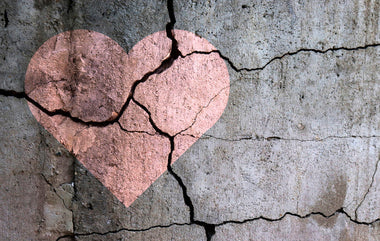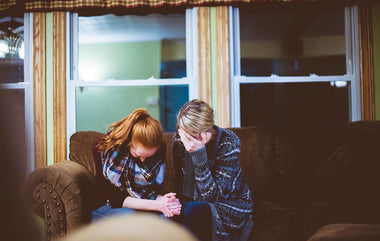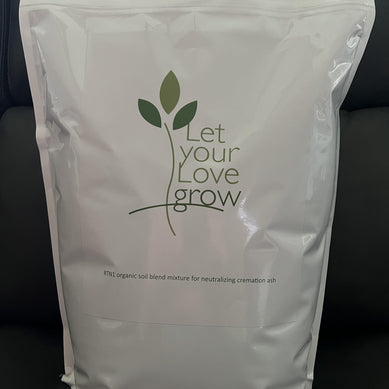Understanding Grief: Knowing When You Need Help
The loss of a loved one is terrible, and it’s only natural to grieve and feel profound sadness and even lose your way as you reel in the aftermath. However, it’s easy for grief to lead you down the wrong path, and if that happens, you need professional help. If you’ve recently lost someone you love or know someone who has, then it’s important to be aware of the warning signs of bad coping. Recognize them so you can seek the necessary help and try to move on to the next stage of life.
Understand the Symptoms of Grief
First, it’s essential to understand the definition of grief and the symptoms you may experience along the way so you know what you’re feeling is only natural. Grief is an overwhelming emotion where you may cry and feel upset for a few days. Grief can also make you feel physically numb, and so saddled with sadness that you feel unable to carry on with your daily duties. That’s why many companies offer bereavement leave after you lose a loved one. It’s important to take these days when you have them so you can grieve without additional issues.
It’s also common to experience feelings of elevated anxiety. You may be more worried about what you never used to worry about in the past. You may even lose sleep, and the lack of rest can affect your thoughts the next day, cause additional stress, and negatively impact your interpersonal relationships. Don’t be secretive about your grief and hide it from friends and family. If they know you’re going through a tough time, they won’t be offended if you’re more standoff-ish during this time.
You may also experience physical reactions to your grief, such as a general lack of energy or unexpected weight loss or gain. Some people are so distraught during grief that they become more susceptible to injuries and get sick easier. Know that these are normal signs but try to take care of yourself during the process so the wear and tear on your body don’t get out of hand.
When You May Need Help
If your grieving doesn’t seem to lessen or you're so distraught that you can’t return to work or find any semblance of normalcy, you must find healthy ways to cope. Before you get to that point, you must also know the negative coping strategies that will only worsen things. If you find yourself under the allure of negative coping methods, you may need help or, at least, support from your family.
There are many unhelpful coping strategies that trap many folks who are feeling grief, and a lot of them seem to involve the overindulgence of unhealthy behaviors. An unhealthy coping mechanism that many people turn to is abusing alcohol or drugs because the substances can take their minds off of their problems, even for a short while. Unfortunately, what you believe are positive feelings quickly wear off, and you end up feeling worse than when you started.
Many people may also form an unhealthy relationship with food and eat more than they can handle or cease eating anything. Some might try to spend their worries away by purchasing items they don’t need, which can eventually put them into debt they can’t escape.
Some people try these and other dangerous tactics, but they still don’t feel better. The feelings of sadness and anxiety can get worse, so it’s time to contact a grief counselor. A good counselor or therapist will listen to your problems. Then, they’ll offer healthy solutions to help you see the light at the end of the tunnel. Sometimes, a particular counselor may not feel like a good fit. In that case, try another until you find the proper connection.
Healthy Ways To Deal With Your Grief
If you don’t feel comfortable going to a counselor or want to supplement those meetings with other healthy coping mechanisms, you have many options.
One is to simply succumb to your emotions and have a good cry. In addition to sweeping out the negative feelings and coming to terms with your loss, crying is also good for your health. Crying is our body’s natural way of relieving stress. When we do it, the tears provide a protective barrier over our eyes that is vital for transporting the nutrients and oxygen our eyes need.
A great way to combat grief and find renewed happiness is to pursue a hobby you’ve always wanted to try. Hobbies will be unique to the individual, but many people pursue artistic endeavors like painting or learning an instrument. Others may find joy in birdwatching or putting complex puzzles together.
Many people also find that writing in a journal before bed can be helpful. We tend to keep our negative thoughts bottled up, so if you’re not comfortable speaking them verbally, then writing them out can put your mind at ease so you can rest easy.
The bottom line is that it’s okay to grieve and be sad. But it’s also important to be self-aware and realize when you’re going down a dark path. If you need help that you can’t seem to find on your own, then reach out to a counselor so you can get back to life as usual.
Meet the Author
Charlie Fletcher is a freelance writer from the lovely “City of Trees”- Boise, Idaho. Her love of writing pairs with her passion for social activism and search for the truth. When not writing she is a part time wedding planner and spending time with her nephews. And yes, she does love all kinds of potatoes!










